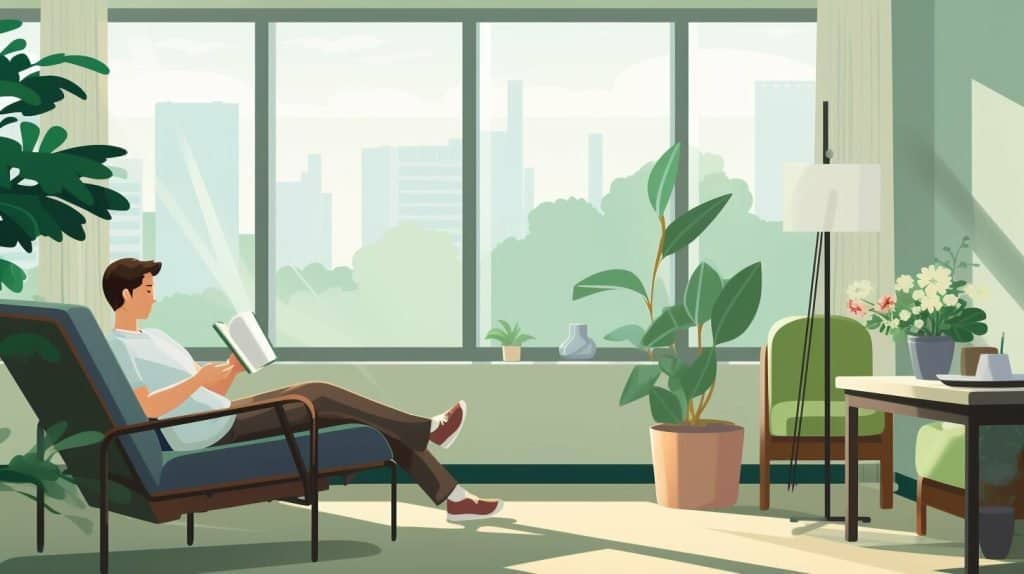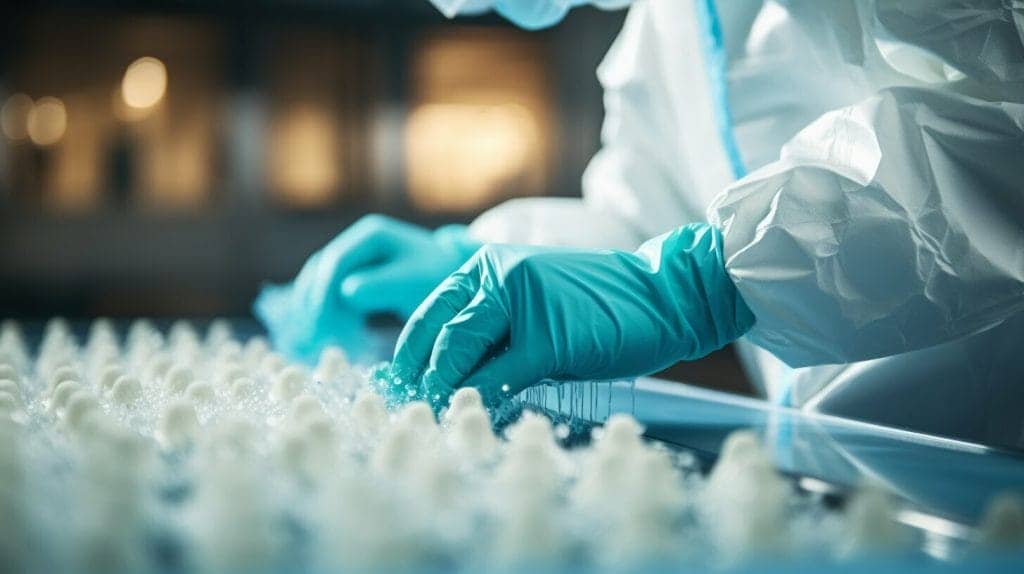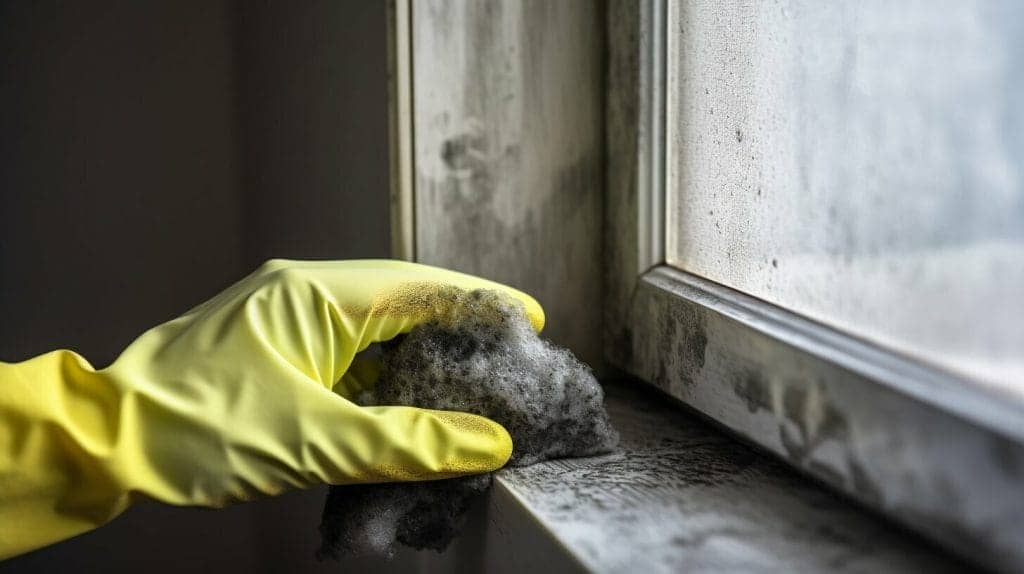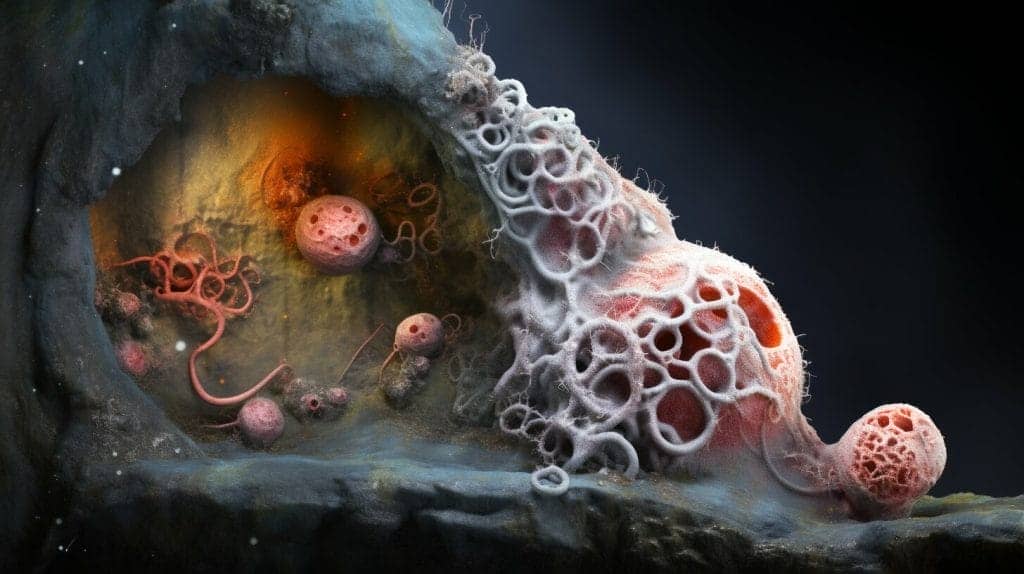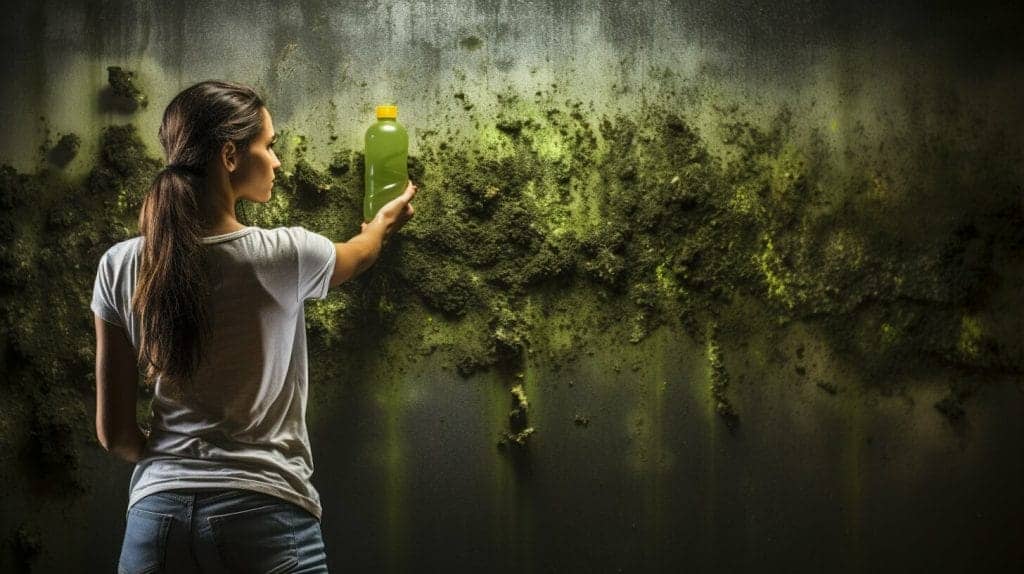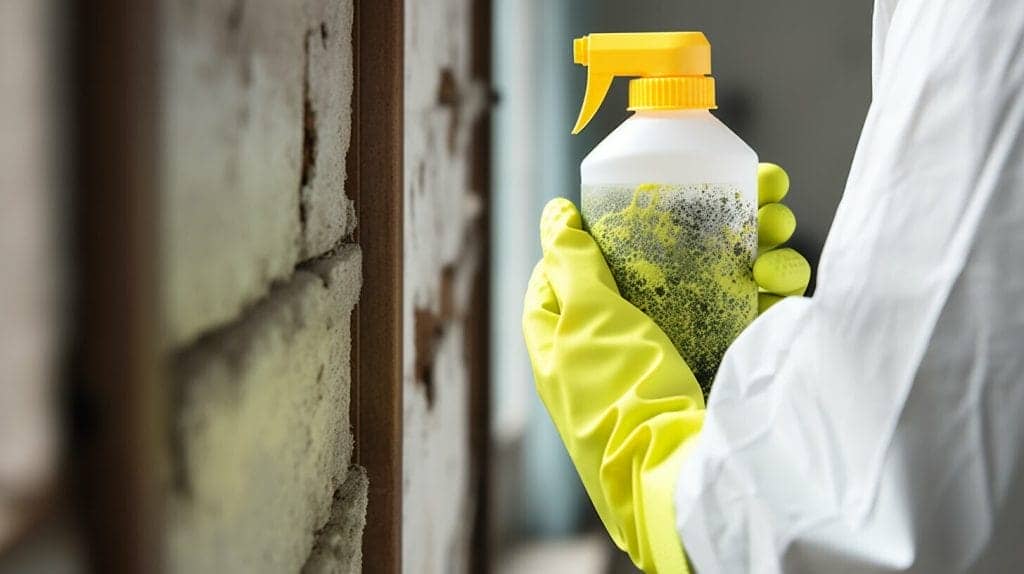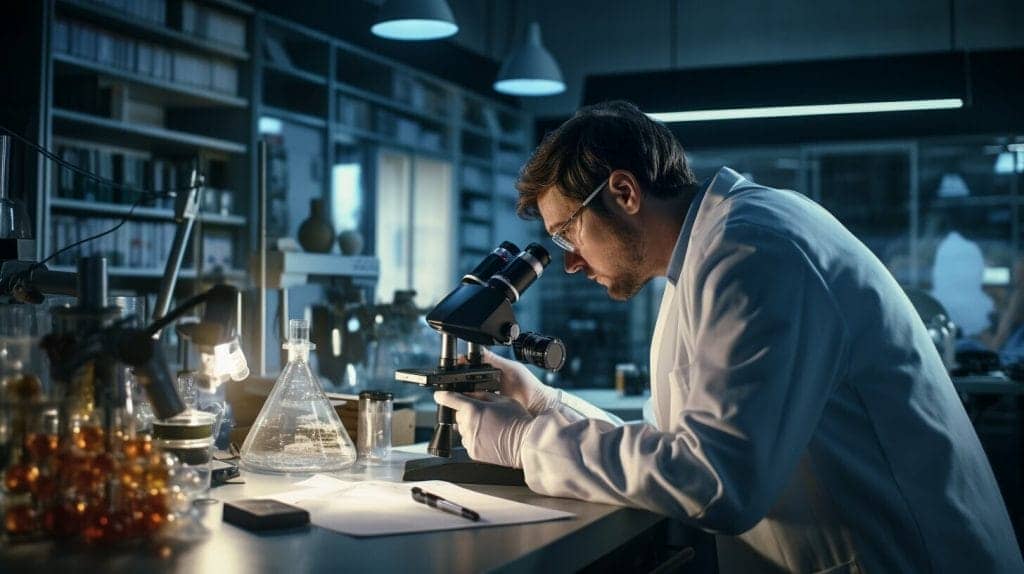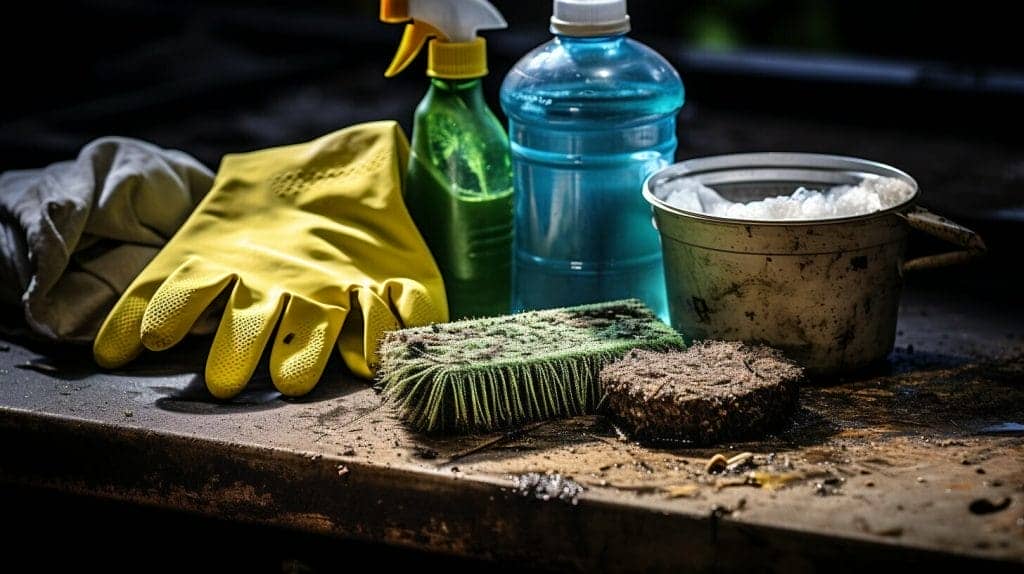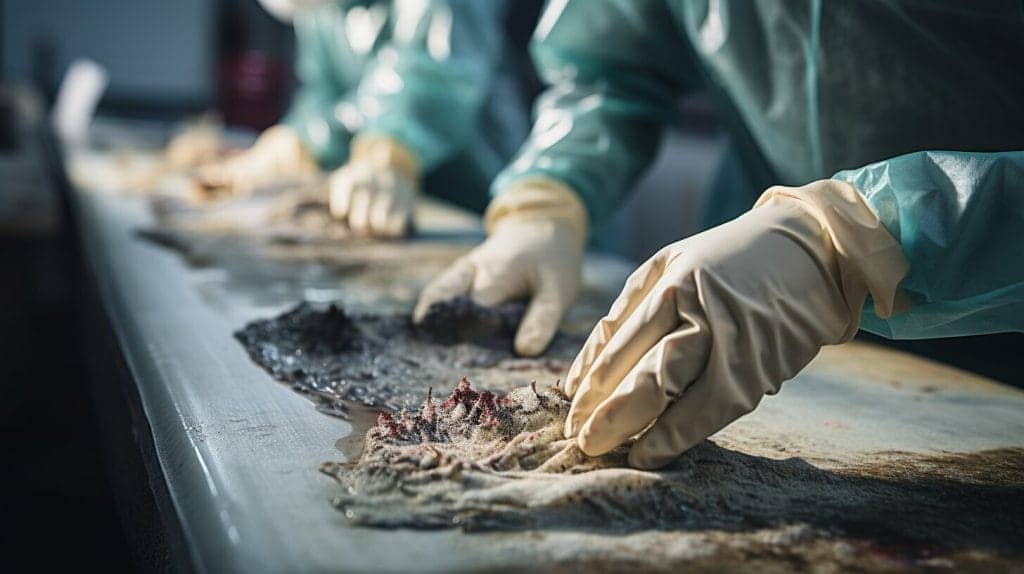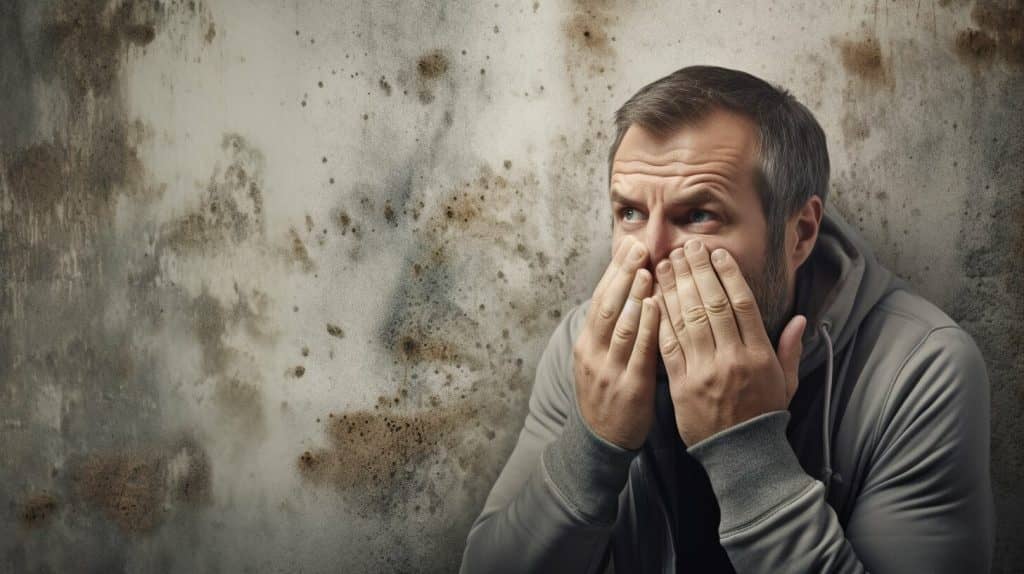Mold exposure can have serious consequences on a person’s health, including respiratory issues, allergies, and other complications. Seeking specialized care is crucial for a safe and healthy recovery journey.
In the United States, there are hospitals specializing in mold-related illnesses, equipped with the necessary expertise, facilities, and resources for effective treatment and care. These hospitals offer advanced therapies for eliminating mold toxins from the body, personalized treatment programs, and holistic approaches that support overall wellness.
Key Takeaways:
- Hospitals specializing in mold-related illnesses offer advanced therapies for mold exposure recovery.
- Personalized treatment programs and holistic approaches support overall wellness during recovery.
- Choosing the right hospital with expertise in mold-related illnesses is crucial for effective treatment and care.
Understanding Mold Exposure and its Health Effects
When mold grows in indoor environments, it produces spores that can cause health effects in humans who inhale them. The severity of these effects depends on several factors, such as the type of mold, the amount of exposure, and individual sensitivity. Mold exposure can cause a range of symptoms, which often resemble those of other respiratory illnesses, making it challenging to diagnose.
Common symptoms of mold exposure include:
- Coughing
- Sneezing
- Wheezing
- Runny or stuffy nose
- Itchy or watery eyes
- Headaches
- Fatigue
- Skin rash
For people with pre-existing conditions such as asthma or allergies, mold exposure can exacerbate these conditions, leading to severe respiratory distress. In extreme cases, long-term exposure to mold can cause permanent damage to the lungs and other organs.
Understanding Mold Types and Their Health Effects
Mold can come in various types, with some species more harmful than others. The most common types of mold found in indoor environments include:
| Type of Mold | Health Effects |
|---|---|
| Stachybotrys chartarum (black mold) | Severe respiratory issues and neurological symptoms |
| Aspergillus | Respiratory problems, infections, and allergic reactions |
| Penicillium | Allergic reactions, respiratory distress, and infections |
| Cladosporium | Allergic reactions, respiratory issues, and skin irritation |
It is essential to take mold exposure seriously and seek medical attention if you notice any symptoms. Mold recovery hospitals and clinics specialize in the diagnosis and treatment of mold-related illnesses and offer advanced therapies for a safe and healthy recovery journey.
Seeking Professional Help for Mold Exposure Recovery
When it comes to recovering from mold-related illnesses, seeking professional help is crucial. While general practitioners may be able to diagnose some symptoms, mold exposure recovery requires specialized care from doctors and medical centers that specialize in this field.
These specialists have expertise in diagnosing and treating mold-related illnesses and use advanced therapies to alleviate symptoms and promote healing. They understand the complexities of mold toxicity and can develop personalized treatment plans that address each patient’s unique needs.
Patients seeking professional help for mold exposure recovery can choose from a range of healthcare providers, including mold recovery hospitals, mold detoxification clinics, and mold-related illness recovery centers. These facilities offer specialized care and resources designed to support patients in their recovery journey.
By seeking professional help, patients can receive the care and attention necessary to achieve optimal recovery and get back to a healthy, mold-free life.
Oasis Medical Institute: Holistic Treatment for Mold Toxicity
Oasis Medical Institute, located in Tijuana, Mexico, is one of the top hospitals in the world for mold exposure recovery. Their holistic treatment approach, led by Dr. Francisco Contreras MD, provides an integrative use of medicine for mold toxicity. The personalized treatment programs at Oasis Medical Institute offer a comprehensive array of therapies, including traditional and alternative medicine, environmental detoxification, and emotional support.
Oasis Medical Institute’s Holistic Approach to Mold Toxicity Treatment
Oasis Medical Institute’s holistic approach to mold toxicity treatment addresses the root causes of mold-related illnesses, providing patients with a safe and effective recovery. The center emphasizes the importance of a personalized treatment plan, designed to meet each patient’s unique needs.
| Treatment Modalities: | Traditional medicine | Alternative medicine |
|---|---|---|
| Environmental detoxification | Emotional support |
The medical experts at Oasis Medical Institute use state-of-the-art diagnostic tools to identify the extent of mold toxicity in patients’ bodies. They use this information to create customized treatment plans that may include ozone therapy, intravenous nutrient therapy, and other targeted treatments for eliminating mold toxins from the body.
The Benefits of Oasis Medical Institute’s Personalized Treatment Programs
Oasis Medical Institute’s personalized treatment programs offer a range of benefits to patients. The integrative use of traditional and alternative medicine provides a comprehensive approach to treating mold-related illnesses. This approach focuses on addressing the underlying causes of the illness, promoting long-term health and wellness.
At Oasis Medical Institute, patients have access to a team of medical professionals who specialize in mold-related illnesses. They work together to provide patients with the best possible care and support, ensuring that every aspect of their recovery is managed with care and precision.
The center’s personalized treatment programs also provide emotional support to patients suffering from the psychological effects of mold exposure. At Oasis Medical Institute, patients can connect with mental health professionals for counseling and support throughout their recovery journey.
Specialized Care at Mold Recovery Hospitals
Hospitals specializing in mold-related illnesses offer comprehensive care and support to individuals recovering from mold exposure. These hospitals have the necessary expertise, facilities, and resources to provide effective treatment and care for mold-related health issues.
Patients can expect specialized care at mold recovery hospitals, including:
| Specialized Medical Staff | Doctors and medical staff with expertise in mold-related illnesses and treatment. |
|---|---|
| Advanced Diagnostic Tools | State-of-the-art equipment and specialized testing for diagnosing mold-related illnesses. |
| Personalized Treatment Plans | Treatment plans tailored to each patient’s specific needs and health concerns. |
| Environmental Remediation Assistance | Guidance and support in identifying and addressing environmental factors that may contribute to mold growth and re-exposure. |
Choosing a hospital that specializes in mold-related illnesses is important for effective treatment and care. These hospitals have the necessary expertise and resources to provide comprehensive care and support to individuals recovering from mold exposure.
Advanced Treatments for Mold Exposure Recovery
When it comes to mold exposure recovery, advanced treatments can help individuals overcome their symptoms and achieve optimal health. Mold detoxification clinics and other specialized facilities offer a range of targeted therapies that can eliminate mold toxins from the body and promote healing.
One such therapy is ozone therapy, which involves the administration of medical-grade ozone gas to stimulate the immune system and detoxify the body. Intravenous nutrient therapy is another effective treatment, which involves the administration of high-dose vitamins, minerals, and antioxidants to support the body’s natural healing processes and combat inflammation caused by mold exposure.
Other Targeted Treatments for Mold Exposure Recovery
Other targeted treatments for mold exposure recovery include:
- Chelation therapy to remove heavy metals that can exacerbate mold toxicity
- Hyperbaric oxygen therapy to increase oxygen levels in the body and promote healing
- Biological dentistry to remove amalgam fillings and toxins that can contribute to mold exposure
These treatments, when used under the guidance of a healthcare professional, can be highly effective in promoting full recovery from mold-related illnesses.
Supporting Overall Wellness during Mold Exposure Recovery
While medical treatment is necessary for recovering from mold-related illnesses, it’s also important to address other aspects of well-being for a comprehensive recovery plan. Mold recovery hospitals often offer holistic treatment programs that consider the emotional, mental, and spiritual aspects of recovery, in addition to the physical.
These programs may include counseling, stress management techniques, and relaxation therapies to support mental health and emotional well-being. Additionally, hospitals may offer activities such as yoga, meditation, and acupuncture to promote relaxation, reduce stress, and support mental and spiritual wellness.
Patients may also receive nutritional counseling and supplement recommendations to support overall health and wellness during the recovery process. This may include recommendations for specific vitamins and minerals, such as magnesium or vitamin C, that can support the body’s natural detoxification processes.
By addressing multiple aspects of well-being, holistic treatment programs can help patients achieve a more complete recovery and support overall health and wellness in the long-term.
Comprehensive Mold Exposure Rehabilitation Centers
For individuals seeking comprehensive care and support for mold-related illnesses, mold exposure rehabilitation centers offer a range of services to aid in the recovery process. These centers provide medical treatment, therapy, and environmental remediation assistance, all under one roof.
Patients can receive personalized treatment programs designed to address their specific needs, including physical, emotional, and mental wellness. The goal of these programs is to help individuals achieve long-term health and prevent future mold-related illnesses.
One example of a top-tier mold exposure rehabilitation center is the Oasis Medical Institute in Tijuana, Mexico. Their integrative approach to medicine, with Dr. Francisco Contreras MD, addresses the symptoms and underlying causes of mold-related illnesses, aiming for complete recovery.
At mold exposure rehabilitation centers, patients receive specialized care from experts who understand the intricacies of mold-related illnesses and have access to advanced treatments and therapies. With a focus on comprehensive care and support, these centers are an ideal choice for individuals seeking to regain their health and well-being after mold exposure.
Choosing the Right Hospital for Mold Exposure Recovery
Choosing the right hospital for mold exposure recovery is integral to successful treatment and care. Patients should consider several factors when selecting a Mold Recovery Hospital. These factors include the hospital’s expertise, reputation, location, available treatments, and patient testimonials.
Factors to Consider When Choosing a Hospital for Mold Exposure Recovery
Expertise: It is essential to choose a hospital that specializes in mold-related illnesses. These hospitals are equipped with the necessary expertise, facilities, and resources for effective treatment and care. Patients should research the hospital’s history of treating mold-related illnesses, the credentials of the doctors, and the available treatment options.
Reputation: Consider the hospital’s reputation and success rate in treating mold-related illnesses. Patients should research the hospital’s online reviews, patient testimonials, and awards or certifications to ensure that they are receiving the highest quality of care.
Location: Patients should consider the hospital’s location when choosing a Mold Recovery Hospital. It is crucial to locate a hospital that is easily accessible and convenient for regular visits. However, patients should be willing to travel if necessary, as specialized care may be unavailable in their area.
Available Treatments: Patients should research the hospital’s available treatments for mold exposure recovery. Specialized treatments, such as ozone therapy, intravenous nutrient therapy, and other targeted treatments for eliminating mold toxins from the body, may be required for effective recovery.
Patient Testimonials: Finally, patients should seek out the experiences of other patients who have undergone treatment at the hospital. Patient testimonials provide valuable insight into the quality of care, patient satisfaction, and overall success rate of the hospital.
By considering these factors, patients can make informed decisions when choosing the right hospital for their mold exposure recovery journey.
The Role of Environmental Factors in Mold Exposure Recovery
Environmental factors play a crucial role in mold exposure recovery, as continued exposure to mold toxins may hinder the healing process and increase the risk of a relapse. To ensure a safe and healthy recovery, it’s essential to create a mold-free living environment that minimizes the risk of exposure.
Hospitals and medical centers specializing in mold-related illnesses offer extensive resources and support to help patients identify and address environmental factors that may contribute to mold growth and re-exposure. This may include conducting a thorough inspection of the patient’s home or workplace to identify areas with high levels of moisture and mold growth.
Once the source of the mold is identified, hospitals may provide recommendations on how to remediate and repair the affected areas, such as cleaning, disinfecting, and installing proper ventilation and insulation systems. Hospitals may also provide guidance on how to maintain a mold-free living environment in the long run, such as using dehumidifiers and air purifiers and regularly cleaning and maintaining household appliances and HVAC systems.
Achieving Long-Term Health and Prevention Strategies
While seeking specialized care for mold exposure recovery is crucial, it is equally important to maintain long-term health and prevention strategies to reduce the risk of future mold-related illnesses. Here are some tips to achieve a healthy living environment:
- Regularly clean and disinfect your home, especially in areas with high humidity or water damage.
- Keep indoor humidity levels below 60% to prevent mold growth.
- Address any leaks or water damage immediately.
- Ensure proper ventilation in bathrooms, kitchens, and other areas prone to moisture.
- Use air purifiers with HEPA filters to remove mold spores from the air.
- Consider using mold-resistant products, such as paints and building materials, in your home.
By following these preventative measures, individuals can decrease their chances of mold exposure and promote overall wellness. As always, consult with healthcare professionals for personalized advice and guidance.
The Impact of Mold Exposure on Mental Health
Mold exposure doesn’t only affect physical health, but it can also take a toll on a person’s mental health. According to the Centers for Disease Control and Prevention (CDC), exposure to mold can trigger feelings of anxiety, depression, and irritability.
The psychological impact of mold exposure can result from several factors. For instance, individuals may feel stressed or emotionally drained from dealing with mold-related issues, such as finding and addressing the root cause of the problem, and managing the cleanup and restoration process. Additionally, those with pre-existing mental health conditions may experience exacerbated symptoms due to mold exposure.
Recognizing and addressing the psychological impact of mold exposure is crucial for a comprehensive recovery process. Mold recovery hospitals often offer psychological support and counseling services to their patients to help them cope with the mental health effects of mold exposure.
“It is essential to address both physical and emotional well-being in mold exposure recovery to ensure a holistic recovery journey,” says Dr. Francisco Contreras MD, a leading expert in mold toxicity treatment at Oasis Medical Institute.
Patients recovering from mold exposure can also benefit from self-care practices that support mental well-being. Relaxation techniques such as meditation and yoga, and engaging in enjoyable activities like reading or listening to music, can help mitigate stress and relieve anxiety and depression symptoms.
If you’re experiencing any psychological effects from mold exposure, it’s crucial to seek help from a qualified healthcare professional. Consulting with a mental health specialist or attending support groups can provide a safe space to discuss your concerns and receive the necessary guidance and support to promote mental and emotional healing.
The Future of Mold Exposure Recovery
Research in mold exposure recovery is constantly evolving to improve treatment options and patient outcomes. Advances in medical technology and understanding of mold-related illnesses have led to the development of new therapies and holistic treatment programs.
One area of focus in mold exposure recovery research is personalized treatment plans. Doctors and healthcare professionals are increasingly recognizing the importance of individualized care to address each patient’s unique symptoms and health history. By tailoring treatment plans to the specific needs of each patient, medical professionals can improve the effectiveness of treatment and increase long-term health outcomes.
Another area where research is making strides is in prevention strategies. Experts are identifying new methods for reducing the risk of mold growth and exposure in homes and public spaces. By implementing mold prevention strategies, individuals can minimize the risk of mold-related illnesses and avoid potential health complications.
As research continues to inform mold exposure recovery, patients can remain hopeful for continued advancements and innovative treatments. With the support of specialized medical centers and healthcare professionals, individuals affected by mold-related illnesses can find the care and resources they need to achieve a healthy and mold-free future.
Finding Mold Exposure Recovery Hospitals Near You
For individuals seeking professional help for mold exposure recovery, it is important to find specialized hospitals and medical centers that can offer advanced therapies and comprehensive care. To locate mold recovery hospitals near you, there are a variety of online resources and medical directories available.
One useful resource is the American Academy of Environmental Medicine, which has a directory of healthcare professionals and facilities that specialize in environmental medicine, including mold-related illnesses. Another good option is to consult with a medical referral service, such as Healthgrades or Zocdoc, which can provide personalized recommendations based on your location and medical needs.
If you are looking for mold exposure recovery hospitals in the United States, it is important to consider factors such as reputation, expertise, available treatments, and patient feedback. Reading testimonials and reviews from other patients who have undergone mold exposure treatment can also be helpful in making an informed decision.
Consultation and Contact Information for Holistic Mold Toxicity Treatment
If you or a loved one is interested in seeking holistic mold toxicity treatment at Oasis Medical Institute with Dr. Francisco Contreras MD, you can schedule a consultation by calling 866-868-1992. During the consultation, you can discuss your symptoms and medical history with Dr. Contreras and learn more about the personalized treatment programs available at Oasis Medical Institute.
To learn more about Oasis Medical Institute and their holistic approach to mold toxicity treatment, visit their website at www.oasisofhope.com.
Conclusion
In summary, mold exposure recovery is a serious matter that requires specialized care. There are top hospitals in the United States that offer comprehensive treatment and advanced therapies for mold-related illnesses. It is essential to seek professional help from specialized doctors and medical centers in this field to ensure a safe and healthy recovery journey.
Holistic treatment programs offered by hospitals consider not only the physical aspects of recovery but also the emotional, mental, and spiritual well-being of the patients. Mold exposure rehabilitation centers provide comprehensive care and support for individuals recovering from mold-related illnesses, including medical treatment, therapy, and environmental remediation assistance.
Choosing the right hospital for mold exposure recovery is crucial. Individuals should consider factors such as expertise, reputation, location, available treatments, and patient testimonials to make an informed decision. It is also important to create a mold-free living environment during mold exposure recovery. Hospitals and medical centers assist patients in identifying and addressing environmental factors that may contribute to mold growth and re-exposure.
Long-term health and prevention strategies after mold exposure recovery are vital. Individuals can maintain a healthy living environment and reduce the risk of future mold-related illnesses by following tips and guidance.
Mold exposure can also have a psychological impact on mental health. It is essential to address any mental health concerns that may arise during the recovery process, and psychological support is available in mold recovery hospitals.
The future of mold exposure recovery looks promising, with current research, advancements in treatment options, and potential innovations that may improve the recovery process for individuals affected by mold-related illnesses.
If you are interested in holistic mold toxicity treatment, you can book a consultation with Dr. Francisco Contreras MD at Oasis Medical Institute. They offer personalized treatment programs that integrate medicine for mold toxicity, among other therapies, to provide a safe and healthy recovery journey.
Overall, seeking specialized care at hospitals specializing in mold-related illnesses is essential for mold exposure recovery. With advanced treatments and comprehensive care, individuals can achieve long-term health and wellness.
FAQ
Q: What is mold exposure?
A: Mold exposure is the inhalation or contact with mold spores, which can lead to various health effects and illnesses.
Q: What are the health effects of mold exposure?
A: Mold exposure can cause respiratory issues, allergies, and other potential complications.
Q: Why is it important to seek professional help for mold exposure recovery?
A: Seeking professional help ensures accurate diagnosis and appropriate treatment for mold-related illnesses.
Q: What is Oasis Medical Institute known for in mold exposure recovery?
A: Oasis Medical Institute is a leading hospital in Tijuana, Mexico, offering holistic treatment for mold toxicity with Dr. Francisco Contreras MD.
Q: What specialized care do mold recovery hospitals provide?
A: Mold recovery hospitals offer specialized expertise, facilities, and resources for effective treatment and care of mold-related illnesses.
Q: What advanced treatments are available for mold exposure recovery?
A: Advanced treatments include mold detoxification clinics and targeted therapies for eliminating mold toxins from the body.
Q: How can overall wellness be supported during mold exposure recovery?
A: Hospitals offer holistic treatment programs that address physical, emotional, mental, and spiritual well-being during recovery.
Q: What do comprehensive mold exposure rehabilitation centers provide?
A: Mold exposure rehabilitation centers offer comprehensive care, including medical treatment, therapy, and environmental remediation assistance.
Q: How can one choose the right hospital for mold exposure recovery?
A: Factors to consider include expertise, reputation, location, available treatments, and patient testimonials.
Q: What is the role of environmental factors in mold exposure recovery?
A: Hospitals assist in identifying and addressing environmental factors contributing to mold growth and re-exposure.
Q: How can long-term health and prevention be achieved after mold exposure recovery?
A: Tips and guidance are provided to maintain a healthy living environment and reduce the risk of future mold-related illnesses.
Q: What is the impact of mold exposure on mental health?
A: Mold exposure can have a potential psychological impact, and psychological support is available in mold recovery hospitals.
Q: What does the future hold for mold exposure recovery?
A: Ongoing research and advancements aim to improve the treatment options and recovery process for mold-related illnesses.
Q: How can one find mold exposure recovery hospitals near them?
A: Online resources, directories, and medical referral services can assist in locating hospitals specializing in mold-related illnesses in the United States.
Q: How can one book a consultation for holistic mold toxicity treatment at Oasis Medical Institute?
A: To book a consultation with Dr. Francisco Contreras MD at Oasis Medical Institute, call 866-868-1992.
Dr. Francisco Contreras, MD is a renowned integrative medical physician with over 20 years of dedicated experience in the field of integrative medicine. As the Medical Director of the Oasis of Hope Hospital in Tijuana, Mexico, he has pioneered innovative treatments and integrative approaches that have been recognized globally for the treatment of cancer, Lyme Disease, Mold Toxicity, and chronic disease using alternative treatment modalities. Dr. Contreras holds a medical degree from the Autonomous University of Mexico in Toluca, and speciality in surgical oncology from the University of Vienna in Austria.
Under his visionary leadership, the Oasis of Hope Hospital has emerged as a leading institution, renowned for its innovative treatments and patient-centric approach for treating cancer, Lyme Disease, Mold Toxicity, Long-Haul COVID, and chronic disease. The hospital, under Dr. Contreras's guidance, has successfully treated thousands of patients, many of whom traveled from different parts of the world, seeking the unique and compassionate care the institution offers.
Dr. Contreras has contributed to numerous research papers, articles, and medical journals, solidifying his expertise in the realm of integrative medicine. His commitment to patient care and evidence-based treatments has earned him a reputation for trustworthiness and excellence. Dr. Contreras is frequently invited to speak at international conferences and has been featured on CNN, WMAR2 News, KGUN9 News, Tyent USA, and various others for his groundbreaking work. His dedication to the medical community and his patients is unwavering, making him a leading authority in the field.
Contreras has authored and co-authored several books concerning integrative therapy, cancer, Lyme Disease and heart disease prevention and chronic illness, including "The Art Science of Undermining Cancer", "The Art & Science of Undermining Cancer: Strategies to Slow, Control, Reverse", "Look Younger, Live Longer: 10 Steps to Reverse Aging and Live a Vibrant Life", "The Coming Cancer Cure Your Guide to effective alternative, conventional and integrative therapies", "Hope Medicine & Healing", "Health in the 21st Century: Will Doctors Survive?", "Healthy Heart: An alternative guide to a healthy heart", “The Hope of Living Cancer Free”, “Hope Of Living Long And Well: 10 Steps to look younger, feel better, live longer” “Fighting Cancer 20 Different Ways”, "50 Critical Cancer Answers: Your Personal Battle Plan for Beating Cancer", "To Beat . . . Or Not to Beat?", and “Dismantling Cancer.”

